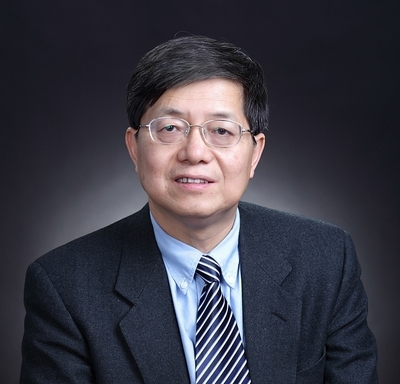

Market Opportunities First Hand
Consul General of the People's Republic of China in Frankfurt, Mr. Wen Zhenshun, assumed charge on September 24, 2009. In our interview, Consul General Wen Zhenshun explains how the promotion of investment in China is set up in particular, which industries are in demand and how especially innovative companies can benefit from China.

GSC: China is one of the most popular markets for foreign investors. What is China as a state doing to encourage foreign direct investments?
Wen Zhenshun: Due to China's rapid economic development, foreign companies, including German enterprises, regard China's development prospects and huge market with optimism. As part of their long-term strategy they increase their investment in China. According to data recently published by the Chinese Ministry of Commerce, the 28 countries of the EU have invested US$ 5.94 billion in China from January to September this year, which demonstrates an increase of 23% in comparison to the previous year. Germany's share amounts to US$ 1.846 billion (which corresponds to an increase of 54.88%). After the establishment of the new Chinese government, China now emphasizes the stability of macroeconomic policies, the enactment of the dividend reform and the improvement of business conditions. From this year on, new measures have been taken to improve investment promotion, such as the release of a number of investment approvals, the transformation from a fee-based system for capital stock to a subscription based system and the simplification of formalities and business registrations. All these measures are benefits for foreign investments. Currently, the Chinese Ministry of Commerce is working to enhance the reform for foreign investment. We strive to create fair, consistent and transparent competition conditions for all businesses as well as for foreign companies.
GSC: Are there specific industries where investments are currently particularly rewarding? If so, which are they and what makes them particularly attractive?
Wen Zhenshun: Together with the National Development and Reform Commission, the Chinese Ministry of Commerce has developed and published the "Orientation Catalogue for Industries for Foreign Investment" and the "Catalogue of Prioritized Sectors for Foreign Investment in China's Midwest". Both catalogs show the significant investment focus in China and point out which industries are explicitly encouraged, restricted or prohibited in terms of foreign investment. Environmental issues are very important to the Chinese government and aims to strengthen economic, green, low-carbon development and to promote modern agriculture, high-tech, advanced manufacturing and other strategic emerging industries. We should strongly support the energy-saving environmental protection industry and services. Energy saving and environmental protection are large markets in China that offer good business opportunities for foreign investment. We strive for a technical cooperation with foreign companies and would like to introduce foreign, competitive, energy-saving products to the Chinese market. Equipment for personal use may be imported free of duty, provided that they are projects from the "Catalogue of Prioritized Sectors for Foreign Investment in China's Midwest". These projects also benefit from a lowered income tax (15%).
GSC: For many foreign investors product piracy in China is a big issue. Some companies even refrain from entering the Chinese market, because they invested many years of research and fear for their intellectual property. What is the government doing to work against this? And how can investors themselves protect their property?
Wen Zhenshun: For the Chinese government it is of high importance to protect intellectual property. In 2008, the "National Strategy Guidelines of Intellectual Property" in China were formulated in order to make IPR protection a national strategy. In more than 20 years, China's relevant laws and regulations for intellectual property rights have been transformed and gradually improved. A relatively complete and advanced intellectual property protection system has formed. The extensive legislation is comparable with the European legislation. In 2011, China was ranked first in the world list for patent applications. By 2012, 1.257 million patents were filed by foreign companies in China - well above the international average. However, we still have some problems in law enforcement. In this regard, China is continuing its efforts in the enforcement of intellectual property rights and to combat product piracy on the Internet and other forms of imitations. In the meanwhile, we also want to raise public awareness for issues concerning intellectual property. In the future, the process of development will be further improved. The Chinese government will continue its efforts to ensure a stable and ordered environment for business and to offer foreign investors an efficient and effective protection.
GSC: There is an increasing demand for innovations in China. The business press even describes a shift from imitation to innovation. Are there any specific incentives for innovative companies in China?
Wen Zhenshun: After years of rapid growth, China has moved away from an imitated economy and is now gradually moving towards an original/high-end economy. The implementation of the innovation-led development strategy, the establishment of enterprises as a backbone as well as the market-oriented research that follows the national innovation system are the primary concerns of the new Chinese government. In order to improve the innovation ability of enterprises, the Chinese government is active in many respects, such as the continuous creation and improvement of R & D facilities and the support of investment in technological R & D centers to promote the industrialization of major scientific and technological projects. In addition, SMEs and strategic alliances for the development of industrial technology are supported. Moreover, there is support for research institutes and universities that promote innovation, in order to broaden the service platform for enterprises in terms of personnel and innovation, to promote an open exchange of scientific and technological resources and to improve the level of cooperation and the development of technological innovation. The improved fiscal and financial policy, which also serves to support technological innovation, is another relevant factor.
GSC: The Consulate General of the PRC in Frankfurt is responsible for the states of Baden-Württemberg, Hesse, North Rhine-Westphalia, Rhineland-Palatinate and Saarland. What services or assistance do they provide to businesses and investors who want to be active in China?
Wen Zhenshun: The Consulate General of the PRC in Frankfurt includes, among others, the Department of Economy and Trade, which is responsible for issues affecting the economic and trade relations between China and Germany. For German companies wishing to gain a foothold in the Chinese market, the Department of Economy and Trade provides information on Chinese economy, industrial policy, the regulations and business practices, and points out relevant companies and institutions. For investment projects we publish relevant information on our website. For customs, taxation, company formation, business docking and specific investments we can recommend the respective bodies to German companies. In addition, we also support Chinese -funded enterprises in Germany, investment institutions and the associations of Chinese -funded enterprises, which are characterized by a good network.
GSC: To which aspects should companies pay particular attention when entering the Chinese market? Given your experience, can you give any tips?
Wen Zhenshun: The majority of the Chinese market's areas is open to foreign traders and investors - China has an open attitude towards foreign investment. The German companies wishing to enter the Chinese market should know the Chinese laws and also have an excellent understanding of Chinese business practices and mutual cultural differences.
GSC: Thank you very much for your informative remarks, Mr. Wen Zhenshun.
